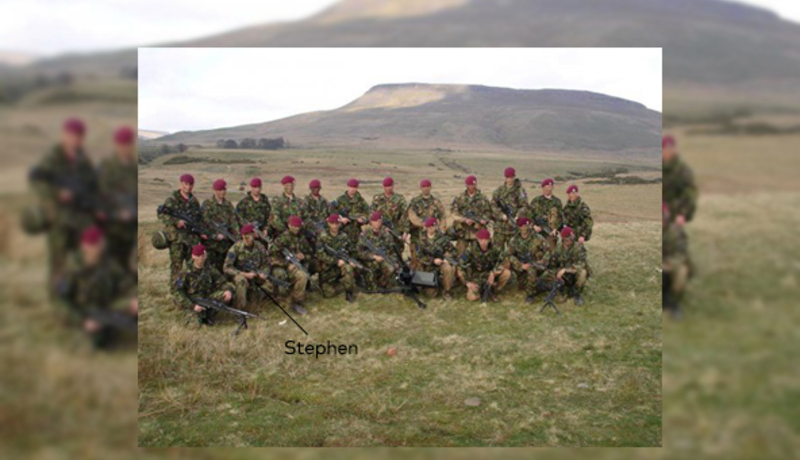Remembrance Day | Stephen’s story
By Stephen Salmon, Marketing Executive
In what now feels like a different life, I used to be a soldier.
Mid-way through studying for my A-levels, I made the decision to pursue a career in the British Army. It was a decision that surprised those who knew me personally, and upon looking back, I’m still not entirely sure what led me to that decision. Whatever it might be, I’m glad I did and I’m immensely proud of having been given the opportunity to serve my country.
Enlisting on 3rd May 2003, I began my basic training a fortnight later, serving in the Royal Engineers. Within days of starting my military career, the Second Gulf War began and my time in the Army coincided with a very active time for the British Armed Forces.
Prior to serving, my thoughts on Remembrance Day would be with those who served and lost their lives during WWI and WWII. My knowledge of these wars largely came from what was taught in school, watching Remembrance Sunday coverage and hearing the stories of WWI and WWII. While the importance of Remembrance was passed down by family members who’d served or have witnessed the effects of war on home soil.
Observing Remembrance Day was always important to me as an individual, but now as an ex-veteran, it holds a very different, personal meaning.
Whilst serving, I had the opportunity to visit the grounds where some of the wars took place, graves of those that were laid to rest on foreign shores, and meet veterans of those campaigns. These experiences gave me a far greater education than school ever had on the sacrifices made by so many.
When we observe that moment of silence on Remembrance Day, my thoughts will be with friends and colleagues who have made that ultimate sacrifice for their country and with those who now live with scars, physical and mental from conflicts in Northern Ireland, Iraq and Afghanistan.
I find it difficult to capture those thoughts and feelings with my own words but there is one quote in particular that sums it up:
“For those who leave never to return.
For those who return but are never the same.
We remember.”
Whether we have connections to the Armed Forces community or not, Remembrance Day provides the opportunity to remember the sacrifices made by British and Commonwealth Armed Forces in defending our country and our freedoms. It also gives us the opportunity to pay respects to all the innocent civilian casualties of war and terrorism.
15,000 service personnel leave the forces every year.
And whether it’s by choice or not, going back to civilian life and re-joining the civilian world of work is a tough integration. While a career in the military differs greatly from a 9 to 5 job, service personnel do have many transferable skills including leadership, teamwork, flexibility, communication, problem solving and integrity. Whilst many of these may be skills on most CVs, for ex-veterans, these skills have been honed and tested in the most trying of environments.
“For those who return but are never the same.”
Leaving the Armed Forces is a challenging time for service leavers, especially for those that are medically discharged. When a military career ends not out of choice, but due to life changing injuries, can make finding a new career (amongst countless other things) even more challenging.
For employers, whether injuries and scars from service are physical or mental, a focus on what the candidate can offer – over focusing on the challenges they could present as a result of these injuries – would make this transition into a new career a far more comforting experience.
At Guidant Global, we pride ourselves on fostering an inclusive and supportive workplace. Be a part of our global family today >
